

Oxford has long been recognised as leading the advance of computers in unravelling complex systems, and the work of its early and modern-day pioneers sits at the very heart of today's computerised society. What is less well-known is the crucial and central role women have played, and continue to play, in this journey.
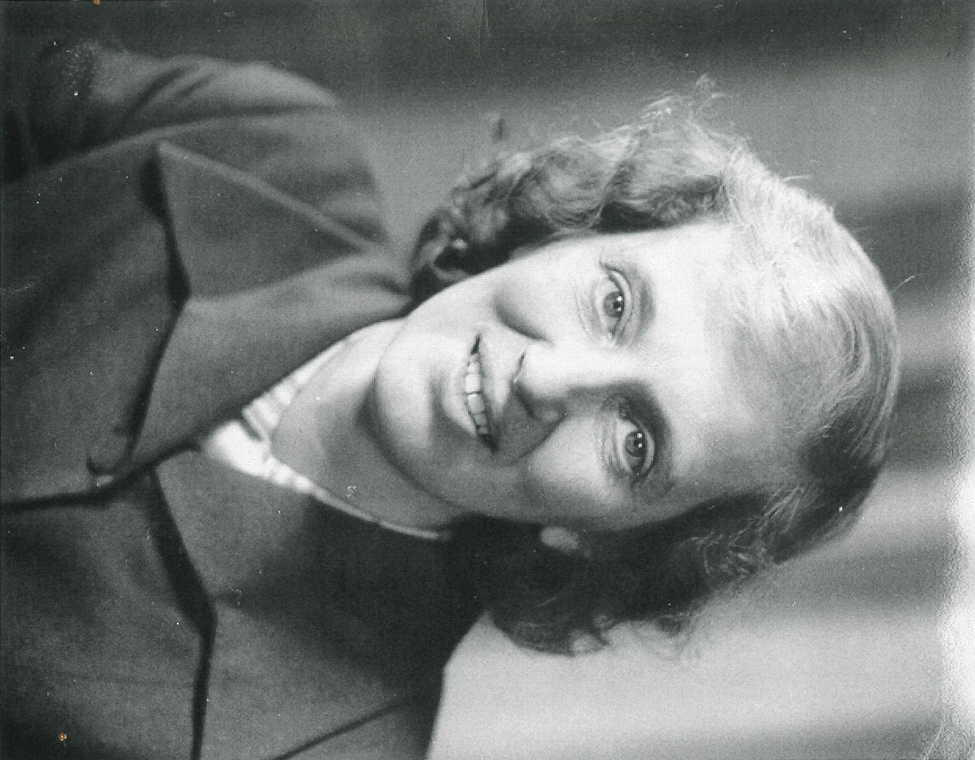
Dorothy Hodgkin , winner of the 1964 Nobel Prize for chemistry, was one of Oxford's earliest computing pioneers, with her beautiful computer-drawn images of the structure of insulin now taking pride of place in the Bodleian Library. It was campaigning by Dorothy and others that led to the founding of the Oxford University Computing Laboratory (OUCL) in 1957 to support research and teaching in numerical analysis and offer a computing service to the University. Dorothy's vision became reality, and the OUCL would later become the Department of Computer Science.
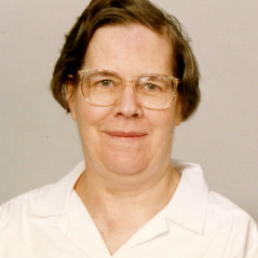
Women played a key role in those early years, as operators and programmers, and in 1960 Joan Walsh was awarded the very first DPhil in the Computing Laboratory. In 1970, she would set up the group that became the highly successful software company NAG.
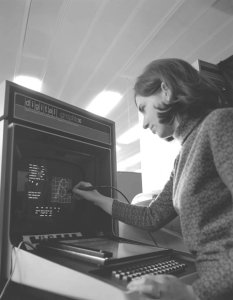
Susan Hockey , a pioneer in her work with computer representations of non-Western languages, joined OUCL in 1975. She became PI for the Oxford Concordance Program (OCP), which has since become central to the study of the digital humanities.
Oxford was ahead of its time and, by 1979, OUCL was welcoming female students from across the world onto its Master's programme in Computation. Nevertheless, many of its female overseas students were struggling to achieve the same level of inclusivity in their home countries. Portuguese student Leonor Barocca, excluded from education at home by political events, was able to take the OUCL course in 1982, shaping her life. Another overseas student, who came top in undergraduate exams in her home country, entitling her to a scholarship to study in Europe, saw her place instead offered to the highest-placed male. She protested, and thankfully funding was found for them both.
Early female students at OUCL were carrying out pioneering work. MSc student Hanan Mohamed wrote an expert system for intricate Sudanese inheritance law, while DPhil student Mary Sheeran developed new programming languages for computer hardware. Mary went on to become one of the first academics and college fellows hired to teach on the OUCL's undergraduate Computer Science programme, launched in 1984.
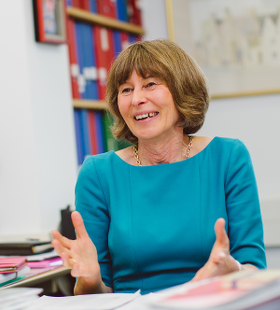
Although the numbers of women in computing in general declined in the later part of the twentieth century, OUCL continued its ethos of equality and inclusivity, and the twenty-first century witnessed a rekindling of the female spirit so evident in its early years. In 2007, Oxford appointed OUCL's first female Statutory Professor, Marta Kwiatkowska , and female faculty numbers have since continued to grow. In 2021, the department appointed its first female Head of Department, Leslie Ann Goldberg .
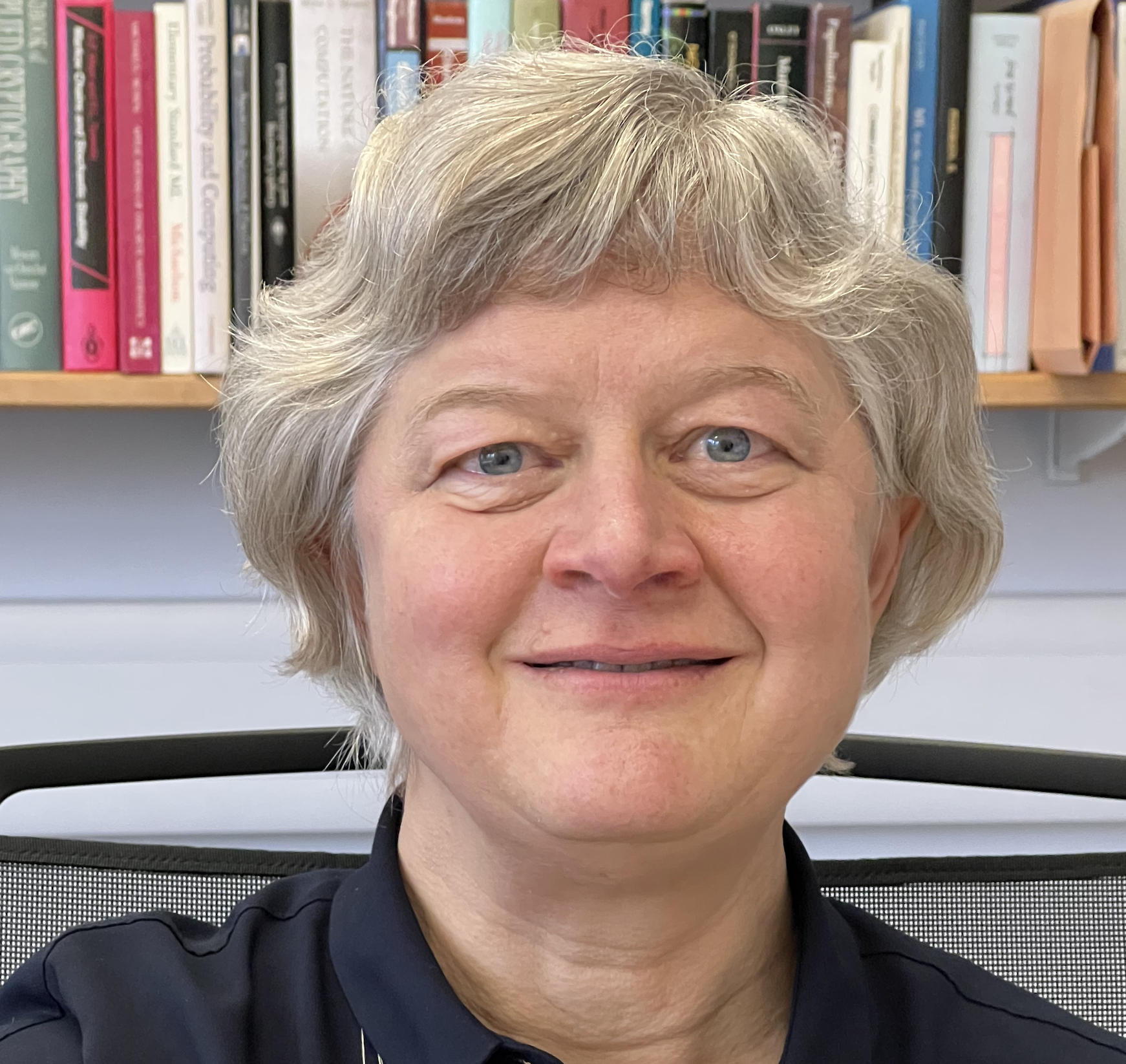
Nowadays, the department has a dedicated Equality, Diversity and Inclusion function that underpins its long-established ethos of gender equality and empowering of women in computer science and beyond. This commitment is reflected in its Athena Swan award, which recognises efforts towards gender equality within HE and research. Today, five of our ten research themes are led by women: Leslie Ann Goldberg is our theme lead for Algorithms and Complexity Theory, Marta Kwiatkowska for Automated Verification, Blanca Rodriguez for Computational Biology & Health Informatics, Nobuko Yoshida for Programming Languages, and Niki Trigoni for Systems. Today, our female faculty members and research staff continue the pioneering work of the first women in the department.
Read more about the ground-breaking work of our female faculty staff.
Meanwhile, an increasing proportion of the next generation of computer scientists at Oxford are set to be women. For the first time, more than one fifth of students across courses are women, as the department continues to buck the trend of the traditionally male-dominated computer science arena. Female students and staff are backed by the Oxford Womxn in Computer Science society, which empowers women and gender minorities in the department to continue to make an impact in computer science.